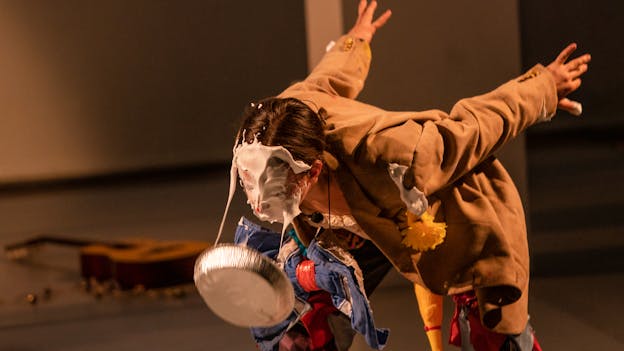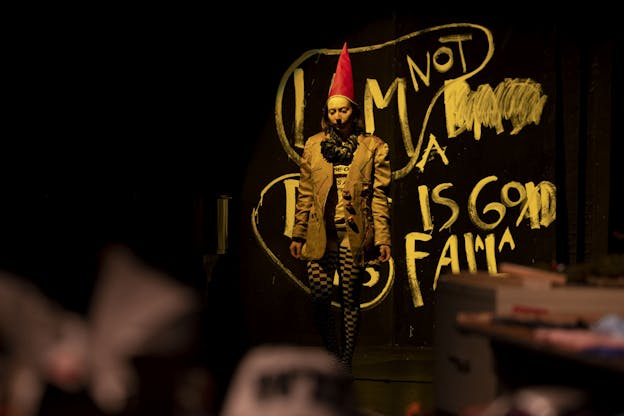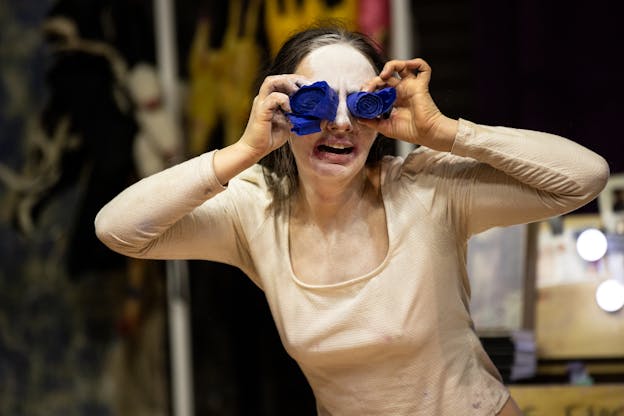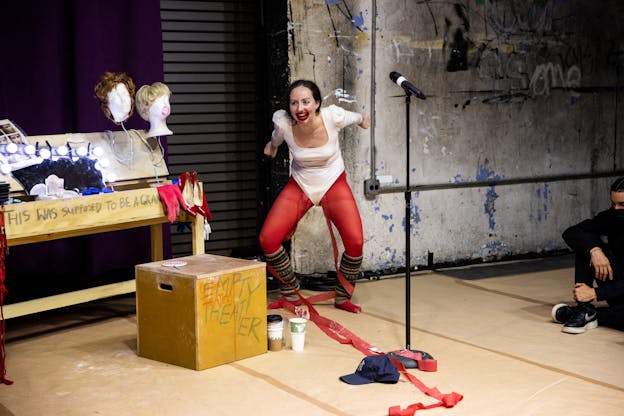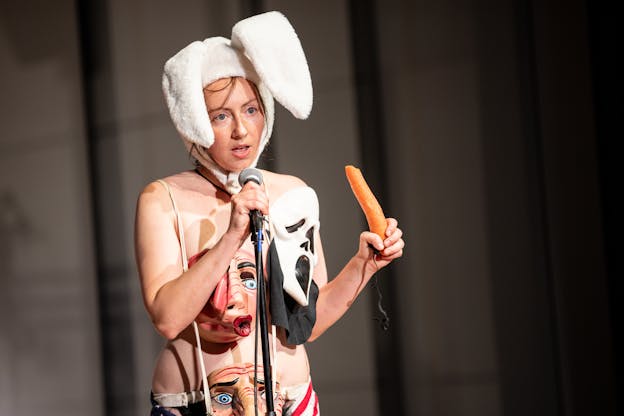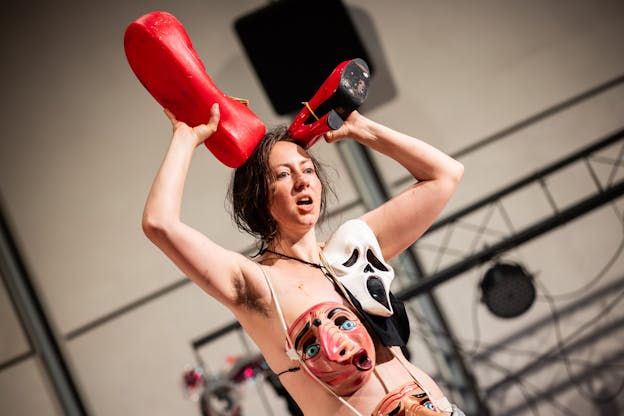Alex Tatarsky
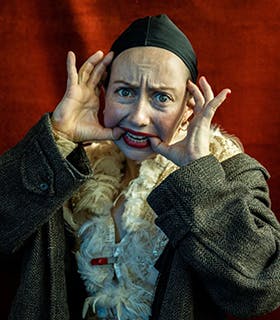
Artist Statement
All my work relishes the etymological kinship between clown and clod, two words with "low" at their heart. I want to crawl inside speech and decompose it from an embodied perspective, how "human" begins with a hum and so easily becomes humus—or humiliation. I make clown plays at the edges of other forms, pursuing mixed up and messy modes as a way to cause trouble at the border and question the disciplines that discipline us. I investigate where socio-political anxieties take up residence in our bodies, spiraling until the audience laughs (or cries). In a world that demands constant work, I relish the stage as a place to delight in dysfunction and refusal, insist on the insights of pleasure, and be possessed rather than possess. I consider the clown an ideal model for our times: one who welcomes failure as a gift, a chance to get creative within impossible circumstances.
- December 2024
Biography
Alex Tatarsky makes performances somewhere in between comedy, poetry, dance-theater, and rant—sometimes with songs. Tatarsky’s pieces play with the tension and overlap between written and improvised sequences, careening between known and unknown, set and scored. Drawing on the lineage of the clown, Tatarsky plays with the expectations and power dynamics of a given context, dissolving the fourth wall to respond to what is actually happening in the room, and probing the construction of genre, self, and narrative in real time.
Sad Boys in Harpy Land, which premiered in 2023 at Abrons Arts Center in New York, NY, is an adaptation of a German novel about a little boy who wants to change the world through art but isn’t very good at it. This narrative collides with other stories of tormented artists during horrific times, moving through the inaction born of anxiety, shame, and overwhelm towards strange and ecstatic modes of re-writing the world together. The performance takes the form of the bildungsroman or development novel—a classic narrative of an individual’s linear progress towards becoming a fully integrated member of society—and lets it decay, reveling in the insights of the fragment, the spiral, the wandering, and the broken bits. Sad Boys in Harpy Land was presented again in 2023 by Playwrights Horizons, New York, NY.
Tatarsky’s other works include MATERIAL, Whitney Biennial, New York, NY (2024); Gnome Core, Glen Foerd, Philadelphia, PA (2023); Dirt Trip, MoMA PS1, Long Island City, NY (2021); Untitled Freakout (Tell Me What To Do), The Kitchen, New York, NY (2021); and Americana Psychobabble, which premiered at La MaMa E.T.C., New York, NY (2016), with subsequent performances as part of the Exponential Festival, Brooklyn, NY (2019); and America(na) to Me, a program celebrating the 90th anniversary season at Jacob’s Pillow, Becket, MA (2022).
In 2015, Tatarsky formed the roving poetic research unit, Shanzhai Lyric, with Ming Lin. Together, they co-founded the Canal Street Research Association, a fictional office devoted to probing the limits of authorship and ownership through the prism of Canal Street, New York City’s beloved and reviled counterfeit epicenter. Their installations and poetry-talks have been presented at X Museum, Beijing, China; Henry Moore Institute, Leeds, United Kingdom; the Canadian Centre for Architecture, Montreal, Canada; Storefront for Art and Architecture, New York, NY; and MoMA PS1’s Greater New York 2021, Long Island City, NY, as well as in disused spaces along Canal Street. Lin and Tatarsky received a Foundation for Contemporary Arts Emergency Grant (2021) to support an installation at Wallplay ON CANAL, New York, NY.
Tatarsky was selected for Soho Rep's 2024/2025 Writer Director Lab with Iris McCloughan and has been recognized with a Pew Center for Arts & Heritage Fellowship (2020).
